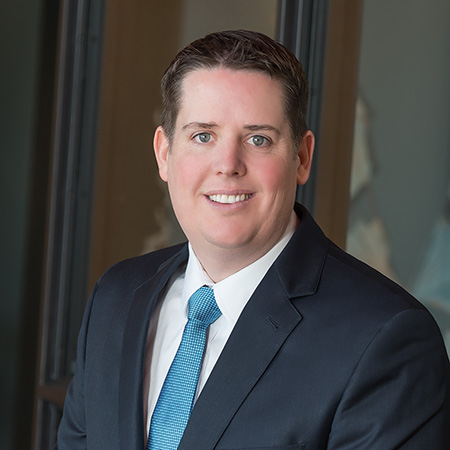For reasons that I cannot understand, there is a perception at times that someone who brings a claim against their broker or the Wall Street firm (called Broker-Dealers) he works for, is somehow an outlier, someone who is going outside of what is considered fair play and getting lawyers involved. This needs to stop.

Investors who bring claims are an essential part of ensuring a well functioning relationship between customers and securities dealers.
I am writing this not just as a trial lawyer who has brought these claims for the last 12 years, but also as someone with my bachelor’s degree in business economics and my masters in business administration. It is basic economic theory, incentives modify behavior. To my mind, discussion about Tort Reform or restricting lawsuits or really any discussion vilifying Claimants only works when the general or broad terms are discussed (there were $XXX million in claims in X year…, lawsuits cost Y industry $XXX millions). However, the arguments always fall apart when you examine the specifics, when you delve into the particular. No one ever begrudges the person who has the wrong leg accidentally amputated by the doctor (and now they have no legs, because the proper leg still needs to be amputated) from being paid both for their loss and for the changes they will need to make to their house to accommodate now being legless because of someone else’s mistake.
Was it about Hot Coffee or exposure to risk?
The classic case that jumps to everyone’s mind is the Hot Coffee at McDonald’s case. This is the running punchline for how our litigation system is out of control. When you look at the general, you can see how, “woman spills coffee on herself and blames McDonald’s.” Of course she was burned, coffee is supposed to be hot! However, when you descend into the particular, you see not a frivolous claim of someone blaming McDonald’s for her own stupidity, but a case where the woman accepted blame for the spill, but brought a claim against McDonald’s because they intentionally served their coffee at near boiling temperatures which nearly killed her causing third-degree burns when she spilled it. She presented credible evidence that this wouldn’t have happened if it was served at a more regular temperature like other restaurants. Adam Ruins everything did a good segment on it a couple of years ago. https://www.youtube.com/watch?v=Q9DXSCpcz9E This case was not about McDonald’s being responsible for coffee being spilled, this was about McDonald’s not taking precautions to make sure its customers were not exposed to unreasonable amounts of risk for profit.
Was it buyer’s remorse or exposure to risk?
Likewise, I have been bringing claims against the Securities Industry for the past twelve years, and what I see time and time again are Wall Street firms exposing their clients (investors) to unreasonable amounts of risk for profit. Any time you look at the particular facts of a case, you don’t see Investor Claims as the culprit, but instead the incentives or practices at the Broker Dealer.
- Case 1 – A group of clients in their 60s, 70s, and 80s all being sold leveraged and inverse exchange traded funds. They were designed as a tool for hedge funds to buy and sell each day, and never to be held long term. These people’s broker however thought he knew better, and the broker dealer he worked for allowed him to put all of his customers substantially into this doomed strategy. Combined they lost millions of dollars and a significant portion of their retirement funds. Does anyone begrudge them recovering what they lost when the Broker-Dealer knew this was an untenable and unsuitable investment strategy?
- Case 2 – A retired investor was put into an illiquid and extremely high risk private investment into a retirement home community business. The business collapsed and the investor lost all of his money that had been invested. It turned out, not only was this investment inappropriate for the investor, but the broker-dealer had underwritten the deal and knew of the financial struggles of the company before it sold the investments. However, the broker-dealer was making money on both ends of the transaction, both for underwriting the investment and selling it to their customers. Does it seem unreasonable that this investor be reimbursed his loss?
The good news is, bringing these claims, and ones like it, works. It modifies behavior. McDonald’s now serves its coffee at a safer temperature, broker-dealers cracked down on private placements and do a better job monitoring their brokers than they ever have in the past. Unfortunately, it does not mean that the problem is fixed or that all brokers were managing risk properly for their clients.
Was it the Covid-19 virus or exposure to risk?
The current health crises is serious, unexpected, and has had a substantial effect on the market. However, the fact that the particular cause of an economic downturn is unexpected, does not mean that appropriate portfolio management did not require making sure that investors with a short time-horizon were not overly exposed to the risk of the stock market. A recent analysis shows that even a 50/50 mix of stocks and bonds would have created more than a 50% better performance for most investors. The issue is not about whether your broker should have seen this particular event occurring, it is that if you are at or near retirement age, you should not have been exposed to a level of risk that results in a significant destruction of your retirement funds.
If this has happened to you, you may have a claim. And as we have seen, it is not just your option to bring a claim, it can be seen as a moral obligation to ensure that not only is your retirement put back on track, but that these Wall Street Firms learn they have to take seriously their duty to make sure their clients are suitably invested, and that includes protecting against downside risks. If your broker had you over-exposed to the market, and you suffered significant losses in your account, you may have a claim to recover those losses in a FINRA Arbitration. The Securities Lawyers practice group at Halling & Cayo, S.C. can help. We take cases all over the country, and we only get paid if we win. Contact us to set up a meeting to review your case.

Sean M. Sweeney is a shareholder at Halling and Cayo, a full service law firm in Milwaukee, WI and the head of its Securities Litigation team.
He represents individual and institutional investors in FINRA arbitration and court nationwide. He recovers investment losses from fraud or breach of duty from their broker-dealer.
Contact him at (414) 755-5020 or via e-mail at SMS@hallingcayo.com to see if he can help recover your funds.
